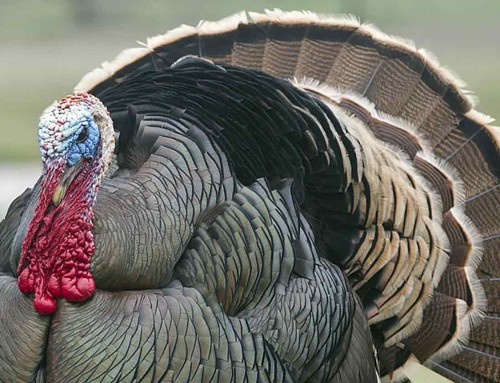Our New Year, Feasts & Holy Days
Understanding Lev. 23:
NEW YEAR:
We as Israelites celebrate our New Year in the Spring, (First day of Abib when the cycle of life begins. This is an ordinance from the God of our Fathers, written in the Books of the Laws.
Exodus 12:1
| “And the LORD spake unto Moses and Aaron in the land of Egypt, saying, This month shall be unto you the beginning of months: it shall be the first month of the year to you”. |
Exodus 23:15
| “Thou shalt keep the feast of unleavened bread: (thou shalt eat unleavened bread seven days, as I commanded thee, in the time appointed of the month Abib; for in it thou camest out from Egypt: and none shall appear before me empty:)”. |
The month of Abib is in the Spring (March/April)
WE KEEP TWO FEASTS:
(#1)The feast of unleavened bread (Passover).
Exodus 23:4-6
| “These are the feasts of the LORD, even holy convocations, which ye shall proclaim in their seasons. In the fourteenth day of the first month at even is the LORD’s Passover.And on the fifteenth day of the same month is the feast of unleavened bread unto the LORD: seven days ye must eat unleavened bread”.
|
What do we understand of the above scripture?
#1: The evening and the morning is the same day. This would mean, that we keep the Passover with our brethren on the evening of the fourteenth day, and on the next day; the fifteenth (not in the evening of the fifteenth, the scripture never said that) before evening we keep the feast. You may read it again.
(#2) Feast of Tabernacles
Exodus 23:23
| “And the LORD spake unto Moses, saying, Speak unto the children of Israel, saying, In the seventh month, in the first day of the month, shall ye have a Sabbath, a memorial of blowing of trumpets, an holy convocation. Ye shall do no servile work therein: but ye shall offer an offering made by fire unto the LORD. And the LORD spake unto Moses, saying, Also on the tenth day of this seventh month there shall be a day of atonement: it shall be an holy convocation unto you; and ye shall afflict your souls, and offer an offering made by fire unto the LORD. And ye shall do no work in that same day: for it is a day of atonement, to make an atonement for you before the LORD your God. For whatsoever soul it be that shall not be afflicted in that same day, he shall be cut off from among his people. And whatsoever soul it be that doeth any work in that same day, the same soul will I destroy from among his people. It shall be unto you a Sabbath of rest, and ye shall afflict your souls: in the ninth day of the month at even, from even unto even, shall ye celebrate your Sabbath. And the LORD spake unto Moses, saying, Speak unto the children of Israel, saying, The fifteenth day of this seventh month shall be the feast of tabernacles for seven days unto the LORD”. |
Understanding the above scriptures should not be very difficult.
#1: The first day of every month we blow up the trumpet as stated in Psalms 81:2
| “Take a psalm, and bring hither the timbrel, the pleasant harp with the psaltery. Blow up the trumpet in the new moon, in the time appointed, on our solemn feast day”.
|
For this was a statute for Israel, and a law of the God of Jacob. Please note carefully: from the evening of the ninth day, to the tenth day is the day of atonement. Please note evening to evening (same day). This is the day of fasting and praying. and on the fifteenth day we have our feast which lasts for seven days. The trumpet ceremony however, is very different on the first day of Ethanim, which is rightly called “THE BLOWING OF TRUMPETS” (seventh month).
(#3) Because we are no longer in the land, we cannot keep the third feast The feast of Harvest., or feast of Weeks: The feast of weeks and the feast of harvest are one and the same. Let us turn to Exodus for you to understand Lev; Exod.34:22
| “And thou shalt observe the feast of weeks, of the first fruits of wheat harvest, and the feast of ingathering at the year’s end”.
|
This feast was kept twice; at the time of preparing (ingathering), and the time of reaping (harvesting), but together they were called The feast of harvest/weeks. 23:9
| “And the LORD spake unto Moses, saying, Speak unto the children of Israel, and say unto them, When ye be come into the land which I give unto you, and shall reap the harvest thereof, then ye shall bring a sheaf of the first fruits of your harvest unto the priest: And he shall wave the sheaf before the LORD, to be accepted for you: on the morrow after the Sabbath the priest shall wave it. And ye shall offer that day when ye wave the sheaf an he lamb without blemish of the first year for a burnt offering unto the LORD. And the meat offering thereof shall be two tenth deals of fine flour mingled with oil, an offering made by fire unto the LORD for a sweet savour: and the drink offering thereof shall be of wine, the fourth part of an hin. And ye shall eat neither bread, nor parched corn, nor green ears, until the selfsame day that ye have brought an offering unto your God: it shall be a statute for ever throughout your generations in all your dwellings. And ye shall count unto you from the morrow after the Sabbath, from the day that ye brought the sheaf of the wave offering; seven Sabbaths shall be complete: Even unto the morrow after the seventh Sabbath shall ye number fifty days; and ye shall offer a new meat offering unto the LORD”. |
This is the only feast, where the following words are mentioned:- WHEN YE COME INTO THE LAND. This statement alone should make it very clear, but let us try to examine it carefully.
#1: The instructions regarding the feast of the Passover finishes at verse 8.
From verse 9, we are dealing with another feast. The feast of harvest. This point must be made very clear, and first understood, before there could be any measure of understanding…
#2: We are not in the land. We are at present, in the land of our captivity. We are not reaping any fruits, first or last. Therefore this alone makes this feast null and void to us.
#3: Counting fifty days from anywhere in the Passover month to be called Pentecost is utter nonsense, and ridiculous. The feast of harvest was kept in the month of Ethanim, which is end of summer, or there about. This is the time of reaping or harvest. Not in the first or second month, not even the third.. What would you be reaping at this time? We should stop believing the teachings of the Khazars.
#4: The feast of ingathering took place in the month of Adar. (The end of the year) This is when the soil was being prepared to plant in the new year, in the first or second month of the year.
Exodus 23:16
| “And the feast of harvest, the first fruits of thy labours, which thou hast sown in the field: and the feast of ingathering, which is in the end of the year, when thou hast gathered in thy labours out of the field”. |
Please note the word LABOUR in the above scripture first fruits of they labour. (First fruit of thy hand, thy sweat, thy work etc.). The feast of ingathering, is the hard work you put in, at this time of preparation. This is the time when you pull out the straws, and old weeds, rake the land, etc. Please note even at the feast of harvest wine could have been used, but only after the Sabbath.
And as the scripture states: 23:37
| “These are the feasts of the LORD, which ye shall proclaim to be holy convocations, to offer an offering made by fire unto the LORD, a burnt offering, and a meat offering, a sacrifice, and drink offerings, every thing upon his day”: |






